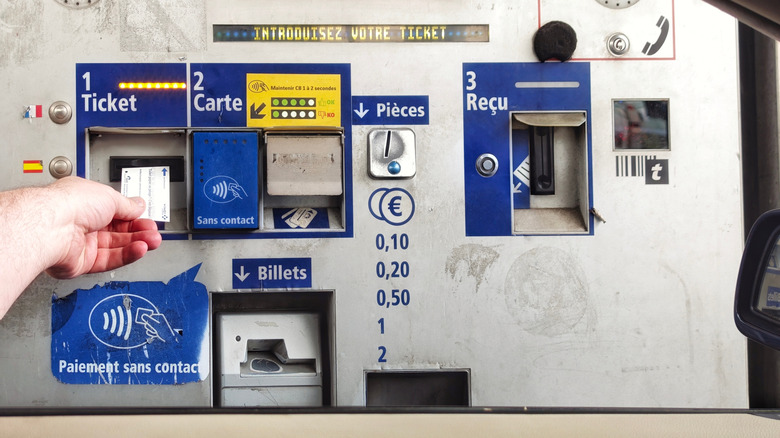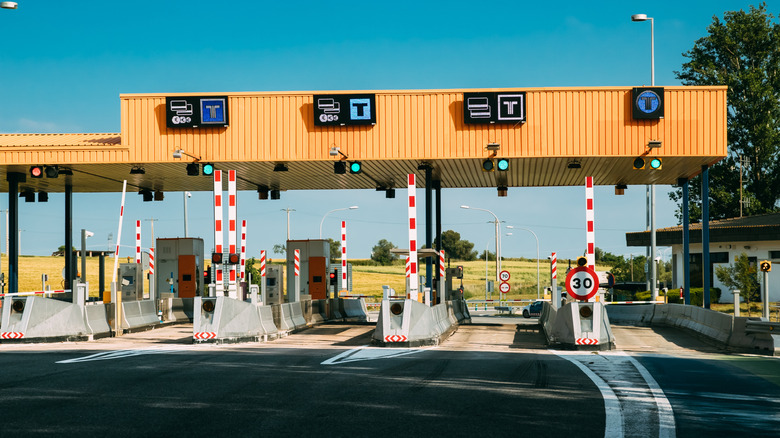Rick Steves Reveals Why Tolls In France Are Tricky And The Easy Hack To Avoid Stress While Driving
There is a lot to consider when renting a car in France. You have to find the best rental car company, pick a place that has automatic cars (manual transmission is more common and cheaper) if you need it, and look into the different French road signs and what they mean. You may not even be considering how to pay tolls, but there are some important things you need to know about them before you begin your trip. Luckily, travel pro Rick Steves has some great advice on how to handle tolls. On his website, Steves says that Americans may want to stick to larger roads, which are called autoroutes (they begin with an A, like A6, for instance). However, most are toll roads, and you have to be prepared to pay. You may expect to be able to use your credit card, but Steves has a warning: "At many tollbooths, American credit cards are not accepted unless they have a smart chip (what Europeans call 'chip-and-PIN' cards)." To avoid stress, he suggests using cash and keeping smaller bills with you, since many toll booth machines won't accept €50 bills.
There are three ways to pay tolls in France, though not every toll booth has all of them. First, you should know the word for toll, which is péage, so you can prepare when you see a sign for one. You should also expect them to be moderately expensive. You can pre-plan on this page from the ASFA. Click on the map, and it will take you to a page from the company who runs the toll booths in the area so you can estimate the cost.
How to pay tolls in France, per Rick Steves
There are usually three symbols on toll booths in France. You'll find "T" for télépéage, or digital payment; a credit card symbol for cards; and either a green arrow or a coin or bill symbol for cash. For télépéage, your car's transponder device will be scanned by sensors and cameras. On some routes, there are also free flow lanes where you pass freely and pay later on the company's website (make a note of what it is) or at a small tabac, or corner store. If you don't pay, the company will send a collections agency after you in your home country.
Rick Steves says to skip those, and the credit card symbols as well, which require your card to have a chip in it (and possibly a PIN). Even if you're tempted to try your card, know that you may not get it back after putting it in the slot. Also note that you can't use smartphones to pay for tolls in France, as it's illegal to use your phone for any reason in a car. As Steves suggests, it's always best to stick with cash. If the French throws you off, pièces means coins, billets means bills, and reçu means receipt if you want one.
One other thing you may not have considered is that rental cars can be big targets for crime. Steves says to leave a local newspaper on the dash to prevent theft so people think you're a local. Finally, if you're renting a car as a senior, there are no upper age limits in France, but if you're traveling to other countries on your trip, you should make sure you can legally rent there.

